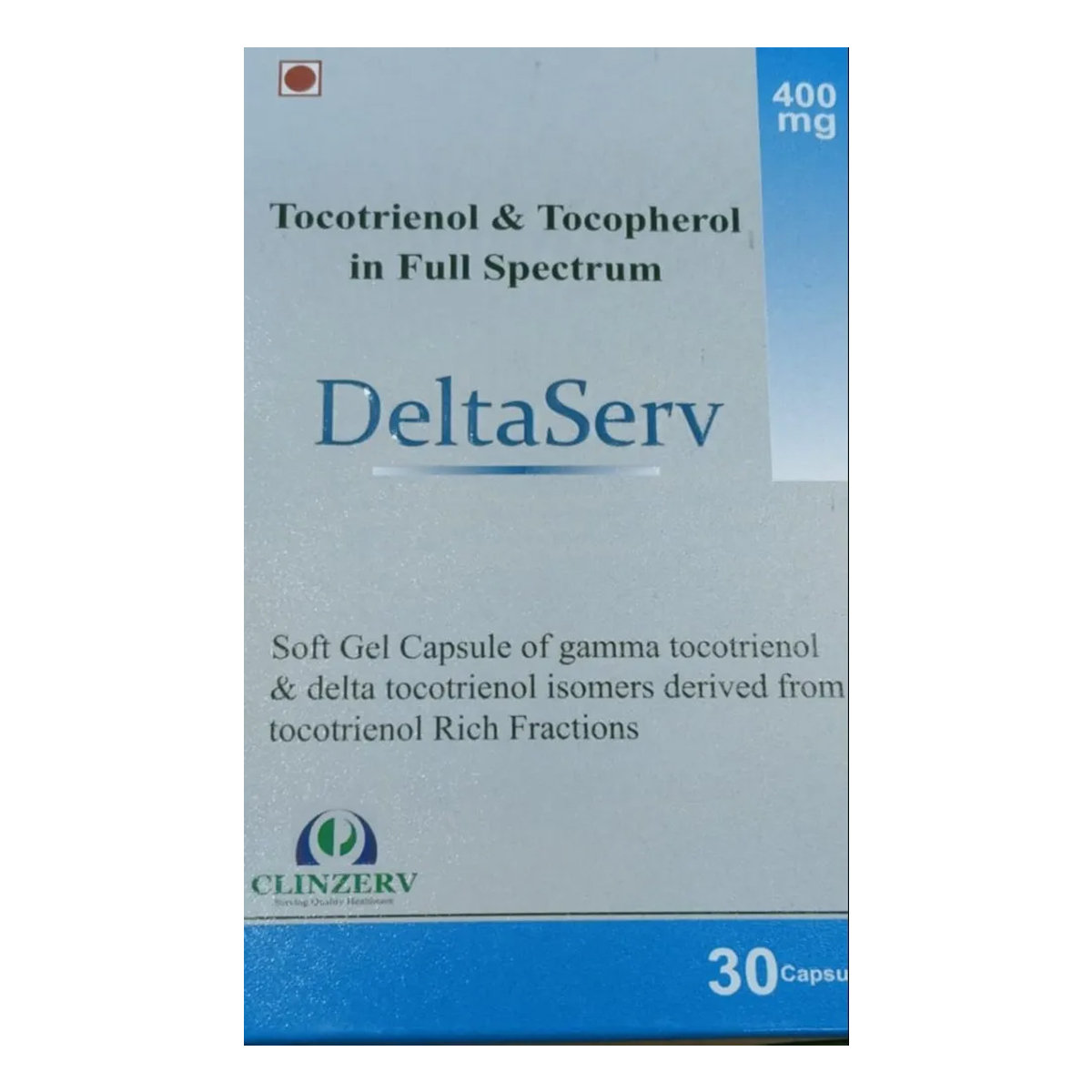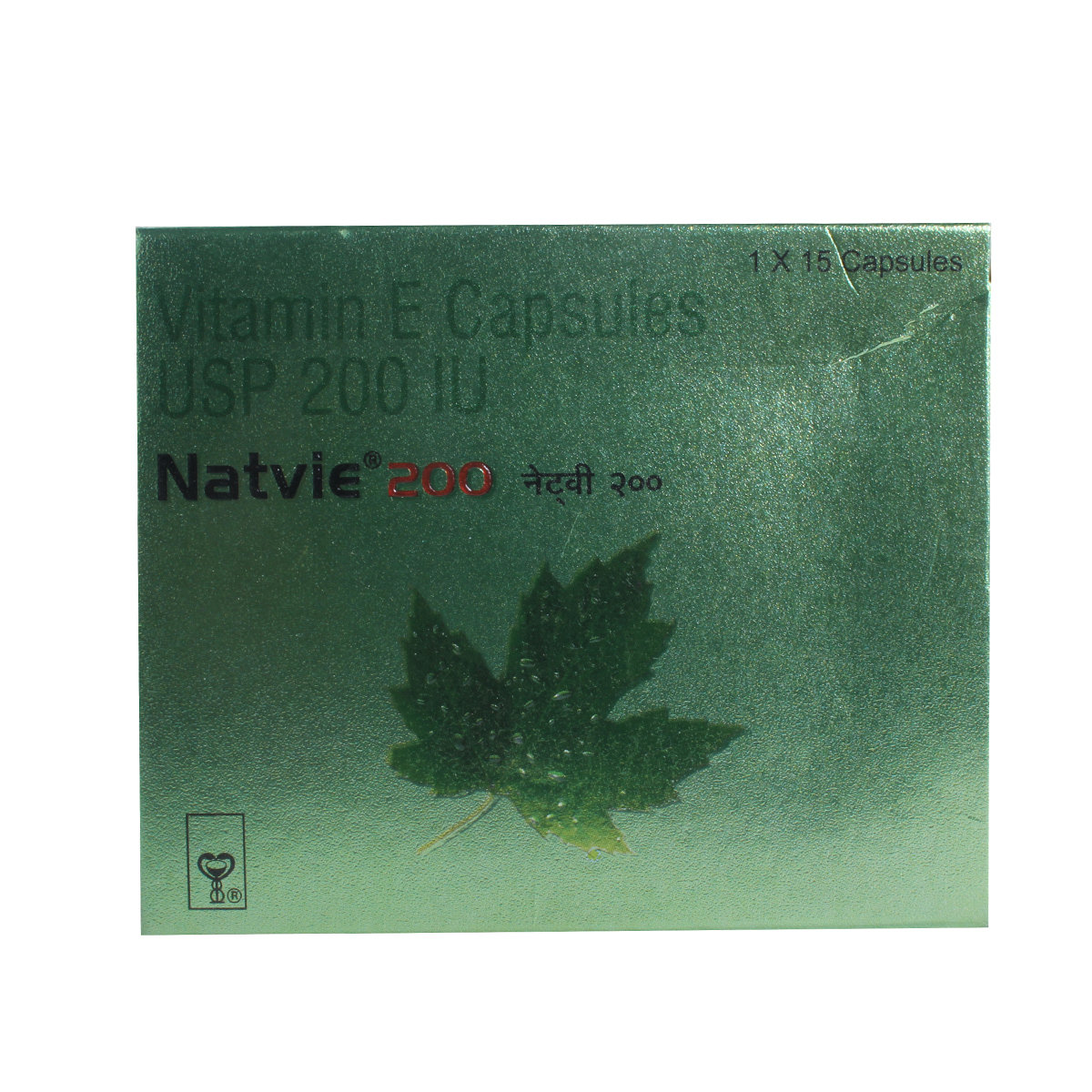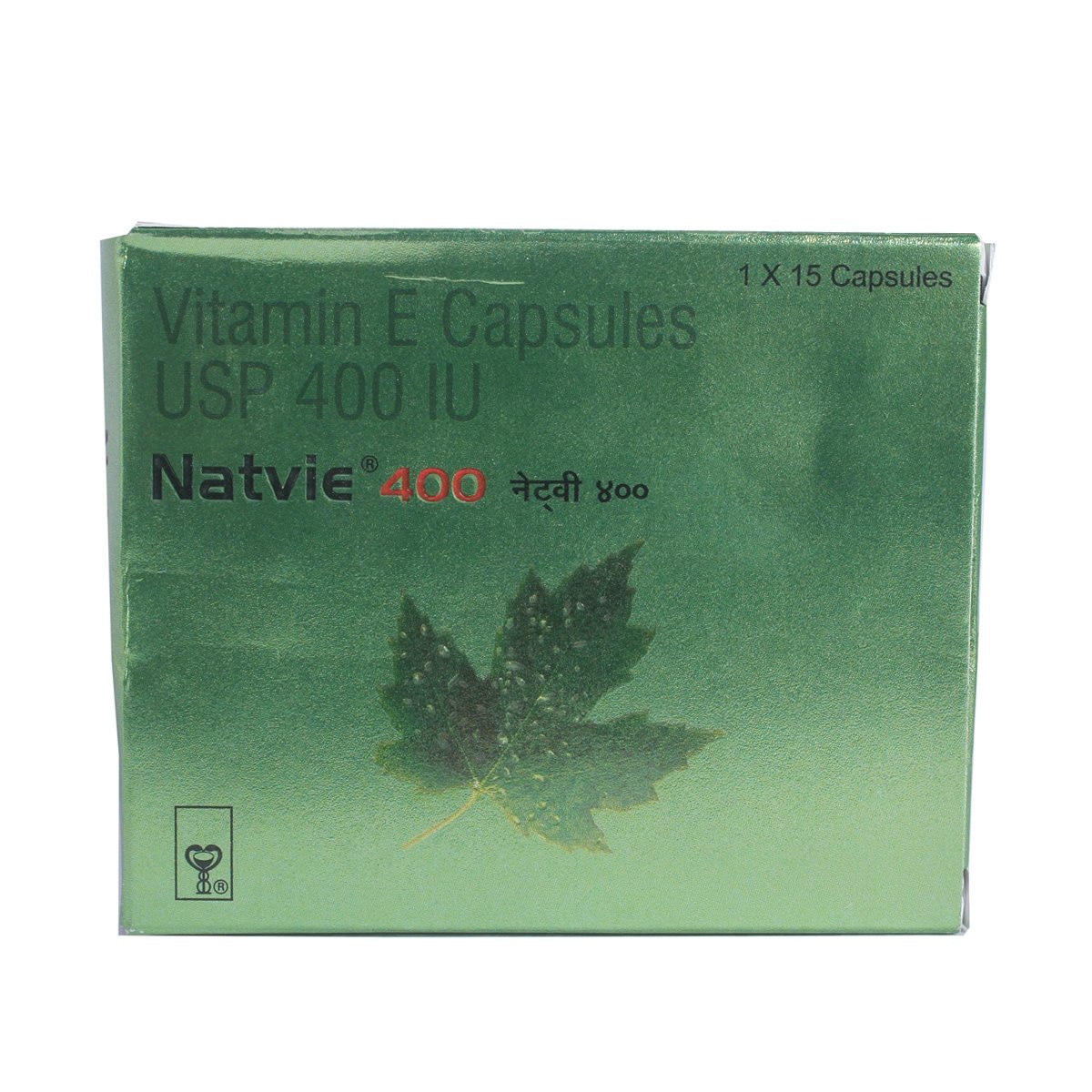Vitamin E
About Vitamin E
Vitamin E belongs to a class of vitamins, primarily used to treat vitamin E deficiency and ataxia (impaired balance) due to various complications or long-term diseases. Vitamin E deficiency occurs when you do not get an adequate amount of Vitamin E from the diet. Symptoms include muscle and nerve damage, loss of sensation in the arms and legs, vision problems, walking and coordination difficulty, numbness, and tingling.
Vitamin E contains Vitamin E (Tocopherol), a fat-soluble vitamin that acts as an antioxidant with anti-inflammatory properties. When too many free radicals accumulate in the body, it leads to various complications and diseases. Vitamin E helps nourish and protect the skin from damage caused by the free radicals. It also lowers the chances of heart diseases, cancers, vision problems, and brain disorders.
You are advised to take Vitamin E for as long as your doctor has advised it for you, depending on your medical condition. You may experience side effects like headache, dizziness, blurred vision, nausea, diarrhoea, flatulence, abdominal pain, rash, fatigue, and weakness. Most of these side effects of Vitamin E do not require medical attention and gradually resolve over time. However, if the side effects persist or worsen, please consult your doctor.
If you are allergic to Vitamin E or any other medicines, it is advised to inform your doctor before starting Vitamin E. Vitamin E should be cautiously used under doctor's supervision if you have liver or kidney diseases, low blood pressure, cancer, bleeding disorder, and a recent heart attack. If you are pregnant or breastfeeding, please inform your doctor before using Vitamin E. If you are taking any medicines or supplements, inform your doctor about them. Vitamin E may cause blurred vision and fatigue; hence it is advisable not to drive unless you are mentally alert.
Uses of Vitamin E
Medicinal Benefits
Vitamin E contains Vitamin E (Tocopherol), a fat-soluble vitamin that acts as an antioxidant. It helps nourish and protect the skin from damage caused by free radicals. It is an anti-inflammatory agent that may also decrease heart disease risk, certain cancers, vision problems, and brain disorders. It protects cells from further damage caused by external factors like pollution, harsh weather, smoking and thus prevents wrinkle formation. Vitamin E is also a natural skin lightening product that decreases melanin production and enhances skin tone, texture, sensitivity, and reduces uneven skin colour. It is known to repair and regenerate the skin's damaged tissues, thus aiding in wound healing and recovery of burns.
Directions for Use
Storage
Side Effects of Vitamin E
- Headaches
- Dizziness
- Blurred vision
- Nausea
- Diarrhoea
- Flatulence
- Abdominal pain
- Rash
- Fatigue
- Weakness
Drug Warnings
If you are allergic to Vitamin E or any other medicines, please inform your doctor in advance. Vitamin E should be cautiously used in conditions like anaemia (low red blood cells), liver/kidney diseases, eye disease, high cholesterol, diabetes, scheduled surgery, a recent stroke, and history of cancer. Vitamin E may cause blurred vision and fatigue; hence drive or operate machinery only when you are mentally alert. It is essential to inform your doctor if you are pregnant, planning to conceive, or breastfeeding before using Vitamin E. Talk to your before taking Vitamin E if you have had any bleeding problems in the past or using steroid hormones like oral hormonal contraceptives. Vitamin E should be used in children only when recommended by a doctor.
Drug Interactions
Drug-Drug Interaction: Vitamin E may interact with blood thinners (warfarin, dicumarol, heparin) and cholesterol-lowering medications (cholestyramine).
Drug-Food Interaction: No interactions found/established.
Drug-Disease Interaction: If you have a bleeding disorder, Vitamin K insufficiency, kidney, liver, heart problems, eye disease, high cholesterol, diabetes, scheduled surgery, a recent stroke, and a history of cancer, inform your doctor before taking Vitamin E.
Drug-Drug Interactions Checker List:
Safety Advice

Alcohol
cautionIt is advisable to limit/avoid alcohol intake during the treatment. Please consult a doctor before consuming alcohol while using Vitamin E.

Pregnancy
cautionIt is not known whether Vitamin E will harm an unborn baby. Vitamin E is recommended for use in pregnant women only when advised by the doctor.

Breast Feeding
cautionIt is unknown whether vitamin E passes into breast milk or could harm a nursing baby. Vitamin E is recommended for use in breastfeeding women only when advised by a doctor.

Driving
cautionVitamin E may cause blurred vision. In such cases, please avoid driving or operating machinery until you feel better.

Liver
cautionLet your doctor know if you have any history of liver disease before using Vitamin E.

Kidney
cautionLet your doctor know if you have any history of kidney disease before using Vitamin E.

Children
cautionVitamin E should be used in children only when advised by a doctor. Dose adjustment may be necessary.
Habit Forming
Diet & Lifestyle Advise
- Include vitamin E sources like wheat-germ oil, peanut oil, olive oil, nuts, seeds, whole grains, milk, spinach, Swiss chard, red peppers, and avocados in your daily food intake.
- Take carbohydrates containing potatoes, beans, and rice since glucose in carbohydrates is essential for healing.
- Eat foods rich in quercetin (a flavonoid), such as apples, cherry, broccoli, spinach, and blueberries.
- Drink plenty of water to stay hydrated and avoid drinking sugary beverages.
- Always wear full coverage clothes before going out in the sun; it will protect your skin from sun damage.
- Please do not use harsh products on your skin as it damages your skin.
- Keep your skin moisturized to avoid dry skin.
Special Advise
If you are allergic to Vitamin E (tocopherol) or have Vitamin K insufficiency (bleeding problem), let your doctor know about it before starting Vitamin E.
Patients Concern
Disease/Condition Glossary
Vitamin E deficiency: Vitamin E deficiency occurs when you do not get an adequate amount of Vitamin E from the food. Symptoms include muscle and nerve damage, loss of sensation in the arms and legs, vision problems, walking and coordination difficulty, numbness, and tingling. Vitamin E deficiency can be caused due to genetic conditions, certain diseases (celiac disease, cystic fibrosis, liver problems, pancreatitis), and inadequate consumption of vitamin E food sources. Treatment includes vitamin E supplementation and a diet rich in vitamin E sources like wheat-germ oil, peanut oil, olive oil, nuts, seeds, whole grains, milk, spinach, Swiss chard, red peppers, and avocados.
FAQs
Vitamin E contains vitamin E/tocopherol, a fat-soluble vitamin that acts as an antioxidant with anti-inflammatory properties. It protects the cells from damage caused by external factors like pollution, harsh weather, smoking and prevents various diseases.
Vitamin E contains Tocopherol, a powerful antioxidant that helps neutralize toxic free radicals developed due to sun exposure and further aids in wound healing. It also has an anti-inflammatory effect and thus soothes redness and irritation of the skin.
Please do not take more than the usual recommended dose since it may lead to overdosage. Overdose symptoms may involve stomach pain, diarrhoea, nausea, headache, dizziness, blurred vision, and tiredness. If you have accidentally taken more amount of medicine, please consult your doctor.
You are recommended to use Vitamin E for as long as your doctor has advised it for you depending on your medical condition or as mentioned on the leaflet.







